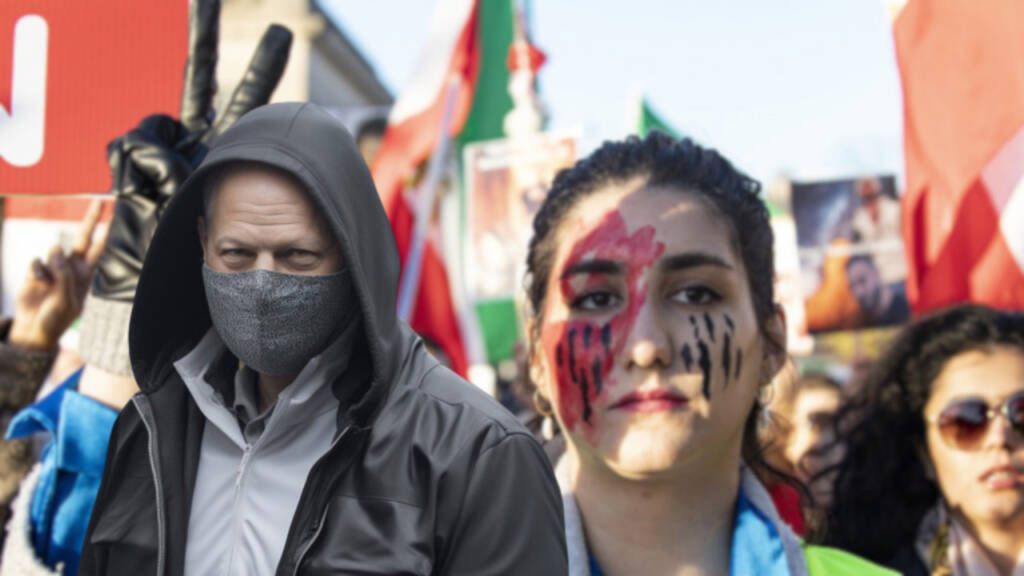Last year, we all heard a few stories that exposed the tale of Iran’s tyranny. A land where dissent is stifled, and even the act of wearing—or not wearing—a piece of cloth can mark the difference between life and death.
The death of Mahsa Amini, a young Iranian woman who paid the ultimate price for challenging theocratic norms, sent shockwaves across the nation. Her arrest, allegedly due to non-compliance with the hijab mandate, spiraled into a chaotic eruption of protests, painting the country in shades of discontent.
As the dust settled, almost 10 months later, the streets of Iran once again bear witness to police vans prowling for the “miscreants” daring to defy the hijab law. However, the game has evolved, and the stakes are higher. The methods of control have shifted from mere intimidation to tech-savvy surveillance tactics, raising eyebrows and questions within Western corridors.
The New Age of Surveillance
Suspicions cast on Iran’s intensifying surveillance are not unfounded. Tracking apps, public cameras, and other technological tendrils have paved their way into the lives of Iranians. In an era where governments worldwide are wrestling with issues of privacy and security, Iran seems to have decided to err on the side of Orwellian control.
And yet, what might sound like a familiar tale of dystopian state monitoring takes a twist worthy of the finest spy novel.
But, Iran’s tech tyranny has a European connection. Enter Germany—a nation renowned for its engineering prowess, and, it seems, it has a hand in Iran’s surveillance venture. The colossal Bosch, a German engineering powerhouse, allegedly contributed its expertise to Iran’s security forces.
Read More: Anti-regime protests are shaking Iran to its core
Germany’s Assistance to Iran
The year was 2017, and an instructional course took place at the Khatam University in Tehran, led by Bosch security experts in collaboration with Iranian partners. The course’s content? The trifecta of Big Brother technology: facial recognition, face detection, and intelligent object tracking.
According to reports, Bosch acknowledged delivering a staggering 8,000 cameras to Iran’s regime between 2016 and 2018. Yet, in an artful dance of words, the company refutes the allegations of enabling full facial recognition, claiming its cameras are innocent bystanders.
The theatre takes another turn when Amnesty International steps onto the stage. Their spotlight shines on Iran’s “mass surveillance,” with a keen focus on enforcing the mandatory hijab for women. Dissidents, like heroes in a thriller, also share tales of sabotaging cameras to protect the identity of protesters.
The Bosch cameras, so unobtrusively installed, are woven into this tale, monitoring streets and highways with silent diligence. Bosch denies any involvement in the instructional course’s facilitation and raises a virtual eyebrow at any implications of misconduct.
Meanwhile, Iranian activists recount the eerie efficiency with which the cameras trigger alarms when more than a handful gather—a distress signal sent straight to the authorities.
While it’s unclear whether Bosch continued dealing with Iran post the US sanctions of 2018, it exposes the chilling reality of international business diplomacy. As the noose of surveillance tightens, Tehran’s knack for finding intermediaries to sustain its technological ambitions comes to the fore.
The very surveillance technology that helped Iran quell the 2022 riots was the creation of a Western giant. A convenient twist that keeps you guessing if there’s more than meets the eye. Germany, the powerhouse of engineering, harbored a deliberate silence—after all, the intricacies of their creation were at play.
Read More: CCP becomes an unexpected casualty of the Iranian protests
This is a reminder that in this age of tech dominion, the line between hero and villain is not so clear. As the curtains fall on this unsettling exposé, one can’t help but wonder—how many other such unsettling narratives lie beneath the polished surface of international relationships?
Watch More:
